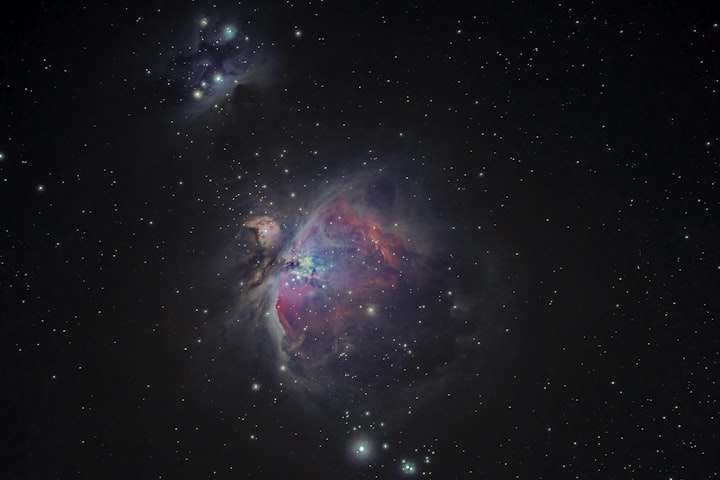
Introduction to the Space-Time Continuum
As a child, I was always fascinated by the vastness of space and the mysteries it holds. The idea that time could be influenced by the environment in which it exists seemed like something out of a science fiction novel. However, as I delved deeper into the realm of astronomy, I discovered that the concept of time dilation, a phenomenon predicted by Einstein's theory of relativity, plays a significant role in our understanding of the universe. In this article, we will explore the intriguing connection between space and time, and investigate whether astronauts age slower in space.
The Effects of Gravity on Time
To comprehend the relationship between space and time, we must first examine the effects of gravity on the passage of time. According to Einstein's theory of general relativity, massive objects, like planets or stars, create a gravitational field that warps the fabric of space and time. This warping effect causes time to flow differently in areas with varying gravitational forces.
For instance, near a massive object, such as a black hole, the gravitational pull is incredibly strong. As a result, time slows down significantly in its vicinity. On the other hand, in areas with weaker gravitational forces, like outer space, time passes at a slightly faster rate. This phenomenon is known as time dilation.
The Twin Paradox: A Case Study on Ageing in Space
One of the most famous examples used to illustrate time dilation and its impact on aging is the Twin Paradox. Imagine two identical twins, one of whom becomes an astronaut and travels into space while the other remains on Earth. The astronaut twin embarks on a long space mission, traveling at speeds close to the speed of light.
Upon returning to Earth, the astronaut twin would have experienced time dilation due to the high velocities involved in space travel. As a result, the astronaut twin would have aged slower compared to the twin who remained on Earth. This time discrepancy between the twins would be evident when they reunite, with the astronaut twin appearing younger than their Earthbound sibling.
Time Dilation Experiments and Findings
Over the years, scientists have conducted numerous experiments to investigate the phenomenon of time dilation and its effects on aging. One such experiment involved placing atomic clocks, which are incredibly precise timekeeping devices, on airplanes and satellites. These clocks were then compared to stationary clocks on Earth.
The findings of these experiments confirmed the predictions of Einstein's theory of relativity. The clocks on the airplanes and satellites, which experienced weaker gravitational forces and higher velocities, showed a slight time discrepancy compared to the clocks on Earth. This evidence further supports the notion that time dilation is a real phenomenon and that astronauts, indeed, age slower in space.
Implications and Applications of Time Dilation
The implications of time dilation extend beyond mere curiosities about the nature of space-time. Understanding how time is influenced by gravity and velocity has significant implications for space exploration and our understanding of the universe.
For instance, as we venture further into space, the effects of time dilation become more pronounced. Astronauts on long-duration space missions, such as those to Mars or beyond, would experience significant time dilation. This means that they would age slower compared to their counterparts on Earth. Consequently, time dilation must be taken into account when planning and executing missions of this nature.
Additionally, the study of time dilation has practical applications in various fields, including satellite navigation systems and high-precision measurements. The accuracy of these systems relies on accounting for the minute time discrepancies caused by differences in gravitational forces and velocities.
Conclusion: The Fascinating Link Between Space and Time
In conclusion, the concept of time dilation is a fascinating aspect of the space-time continuum. As predicted by Einstein's theory of relativity, time can be influenced by gravity and velocity, leading to the phenomenon of time dilation. Astronauts, due to their exposure to weaker gravitational forces and high velocities in space, do indeed age slower compared to their counterparts on Earth.
This understanding of time dilation has profound implications for space exploration and our understanding of the universe. It necessitates careful planning and consideration of the effects of time dilation on long-duration space missions. Moreover, the study of time dilation has practical applications in various technological fields.
As we continue to explore the mysteries of the universe, the link between space and time remains a captivating area of study. It reminds us that the fabric of reality is far more intricate and interconnected than we may have ever imagined.





Comments
There are no comments for this story
Be the first to respond and start the conversation.